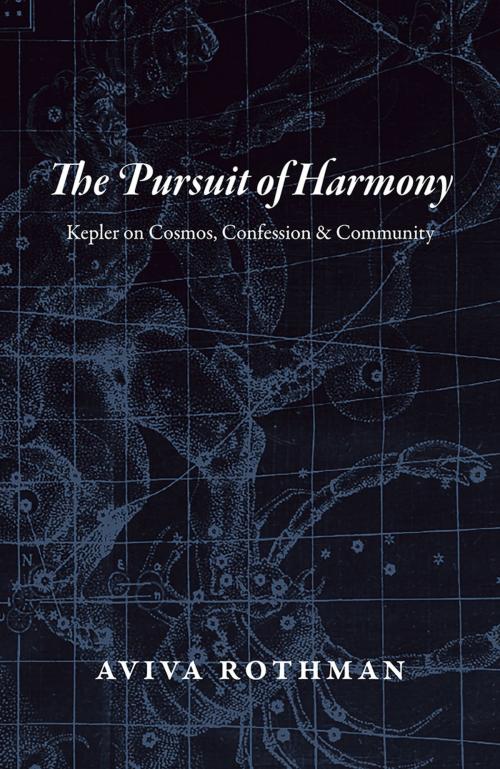The Pursuit of Harmony
Kepler on Cosmos, Confession, and Community
Nonfiction, Science & Nature, Science, Physics, General Physics, Other Sciences, History| Author: | Aviva Rothman | ISBN: | 9780226497020 |
| Publisher: | University of Chicago Press | Publication: | November 3, 2017 |
| Imprint: | University of Chicago Press | Language: | English |
| Author: | Aviva Rothman |
| ISBN: | 9780226497020 |
| Publisher: | University of Chicago Press |
| Publication: | November 3, 2017 |
| Imprint: | University of Chicago Press |
| Language: | English |
A committed Lutheran excommunicated from his own church, a friend to Catholics and Calvinists alike, a layman who called himself a “priest of God,” a Copernican in a world where Ptolemy still reigned, a man who argued at the same time for the superiority of one truth and the need for many truths to coexist—German astronomer Johannes Kepler was, to say the least, a complicated figure. With The Pursuit of Harmony, Aviva Rothman offers a new view of him and his achievements, one that presents them as a story of Kepler’s attempts to bring different, even opposing ideas and circumstances into harmony.
Harmony, Rothman shows, was both the intellectual bedrock for and the primary goal of Kepler’s disparate endeavors. But it was also an elusive goal amid the deteriorating conditions of his world, as the political order crumbled and religious war raged. In the face of that devastation, Kepler’s hopes for his theories changed: whereas he had originally looked for a unifying approach to truth, he began instead to emphasize harmony as the peaceful coexistence of different views, one that could be fueled by the fundamentally nonpartisan discipline of mathematics.
A committed Lutheran excommunicated from his own church, a friend to Catholics and Calvinists alike, a layman who called himself a “priest of God,” a Copernican in a world where Ptolemy still reigned, a man who argued at the same time for the superiority of one truth and the need for many truths to coexist—German astronomer Johannes Kepler was, to say the least, a complicated figure. With The Pursuit of Harmony, Aviva Rothman offers a new view of him and his achievements, one that presents them as a story of Kepler’s attempts to bring different, even opposing ideas and circumstances into harmony.
Harmony, Rothman shows, was both the intellectual bedrock for and the primary goal of Kepler’s disparate endeavors. But it was also an elusive goal amid the deteriorating conditions of his world, as the political order crumbled and religious war raged. In the face of that devastation, Kepler’s hopes for his theories changed: whereas he had originally looked for a unifying approach to truth, he began instead to emphasize harmony as the peaceful coexistence of different views, one that could be fueled by the fundamentally nonpartisan discipline of mathematics.















